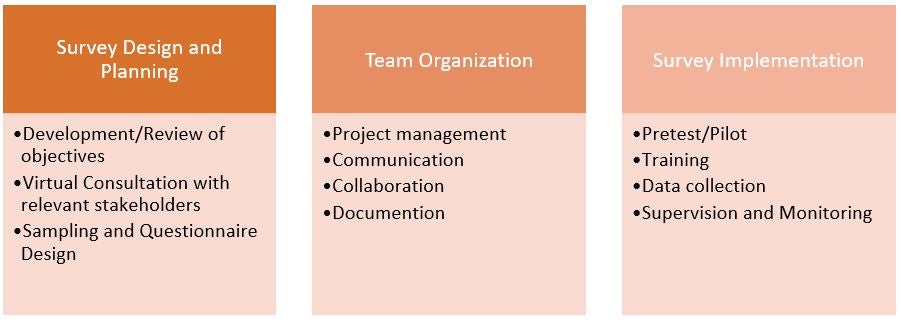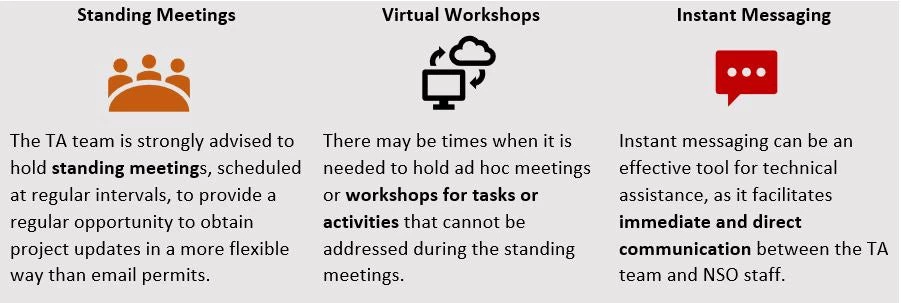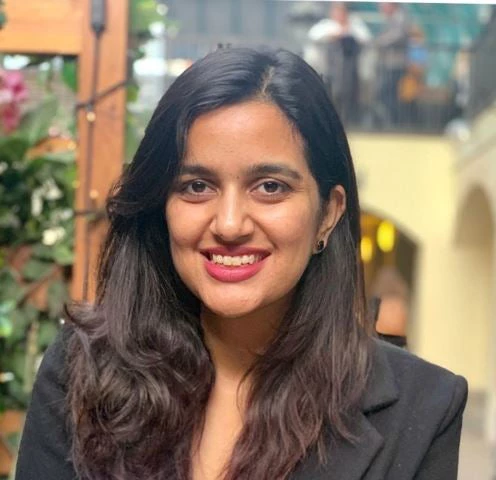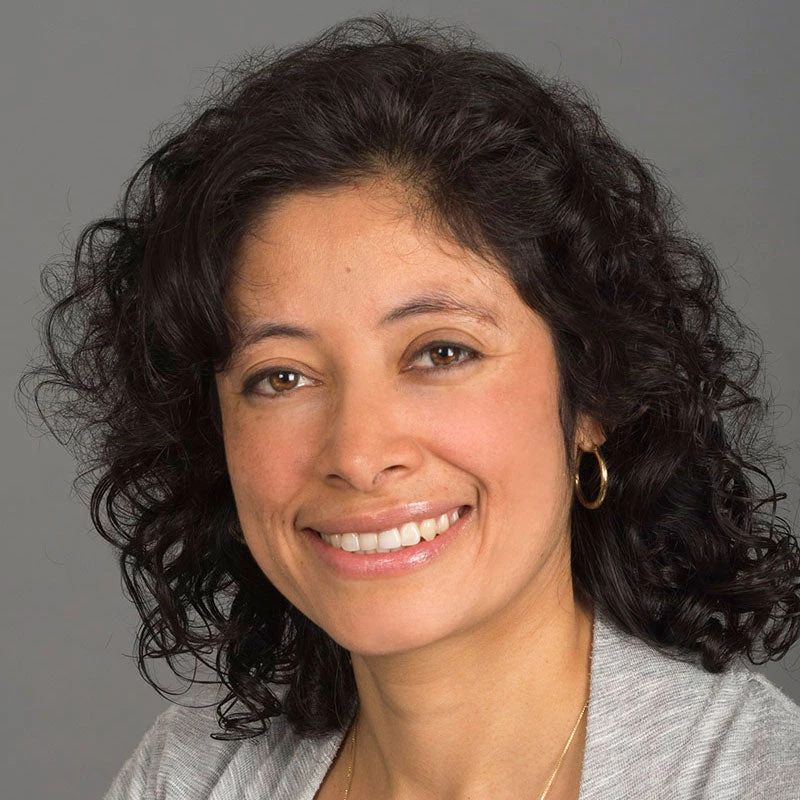
The COVID-19 pandemic led to major disruptions globally, and survey operations were not immune from its impact. Much-needed mitigation efforts by country leaders, such as travel restrictions, social distancing, and lockdowns, though instrumental in curbing the spread of the virus, made traditional face-to-face surveys and the accompanying technical assistance difficult to execute. By May 2020, 96% of National Statistics Offices (NSOs) had partially or completely halted face-to-face data collection and had to rely on web and phone interviews to conduct surveys.
As some of these countries gradually resumed in-person operations, Task Force on COVID-19 and Household Surveys put together a guidance note, Planning and Implementing Household Surveys Under COVID-19, which addressed considerations for safe survey implementation during the pandemic. However, due to travel restrictions still in place, the Technical Assistance (TA) teams have had to provide remote support to the NSOs. This technical note, prepared by the Living Standards Measurement Study (LSMS) team, details ways in which TA teams can adequately support survey operations in client countries with minimal disruptions to the data collection efforts. This note is guided by the following principles: continuity of support, adherence to safety protocols, and limits on in-person activities.
Remote TA support is effective when the focus is on three core areas of survey implementation:
The survey design should involve multiple rounds of meetings between the TA team and the NSOs to discuss or develop (in the case of a new survey) the survey objectives. The TA team should also facilitate virtual consultations with the stakeholders, which include local health authorities, experts, labor protection units and the Interagency COVID-19 task force. Notes from these discussions should be drafted and circulated for feedback in a timely manner.
Efficiency and organization are even more crucial when conducting remote TA support, as all team members should be kept in the loop at each stage of the process. This can be achieved through the use of organizational tools (e.g., OneNote and Microsoft project), which can help identify responsible parties, set timelines, document resources, store inputs, and provide a mechanism for tracking progress. Communication via workshops, meetings, or instant messaging helps with the immediate relay of updates and changes. CAPI and CATI applications, as well as all survey and data validation software, should be tested prior to first use, and all practitioners should be adequately trained in the use of each. This note also provides strategies for effectively monitoring interviewer performance during data collection.
For remote TA support to run smoothly, it is essential to observe and document the limitations of virtual trainings and meetings, and thus, provide both organizers and participants with guidelines to facilitate effective communication. Choosing the right virtual venue–which in this case will be determined by the software used; and deciding the optimal length of the meeting and number of participants, are all crucial factors in ensuring a smooth, collaborative and productive process. Black swan events, such as this pandemic, by their nature are unpredictable, and necessitate the need to build in adaptability and flexibility into every aspect of survey implementation. To this end, the TA team should, to the extent possible, support all phases of survey implementation to ensure comprehensive and accurate data collection.
Resources:
Read the technical guidance note: Remote Technical Assistance for Surveys









Join the Conversation